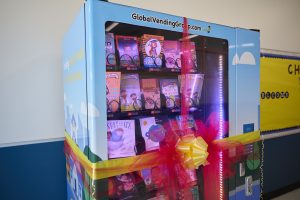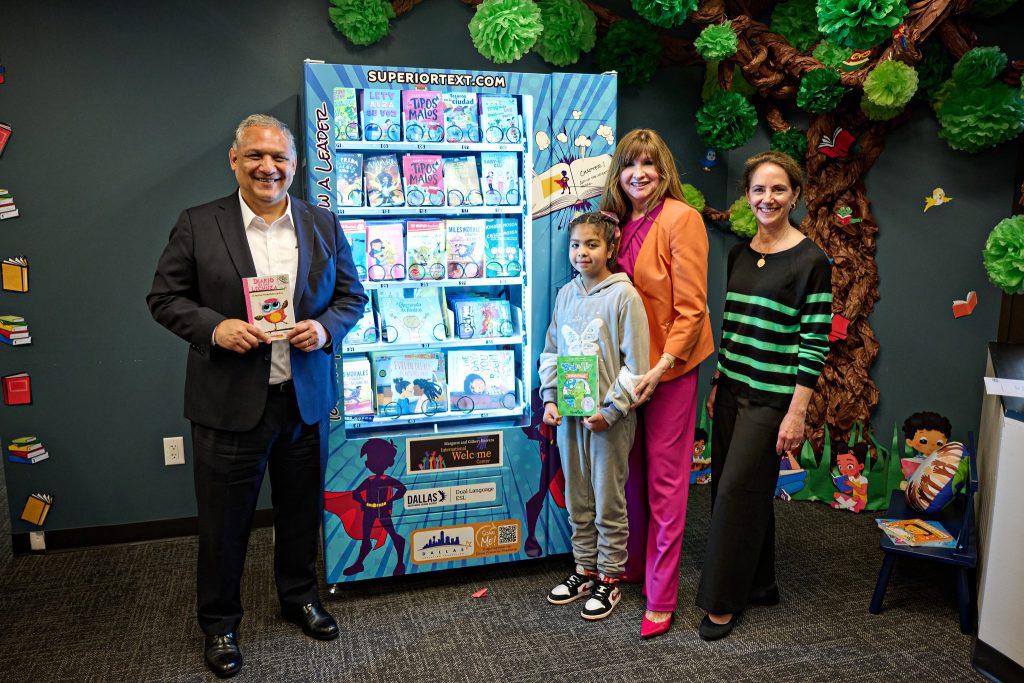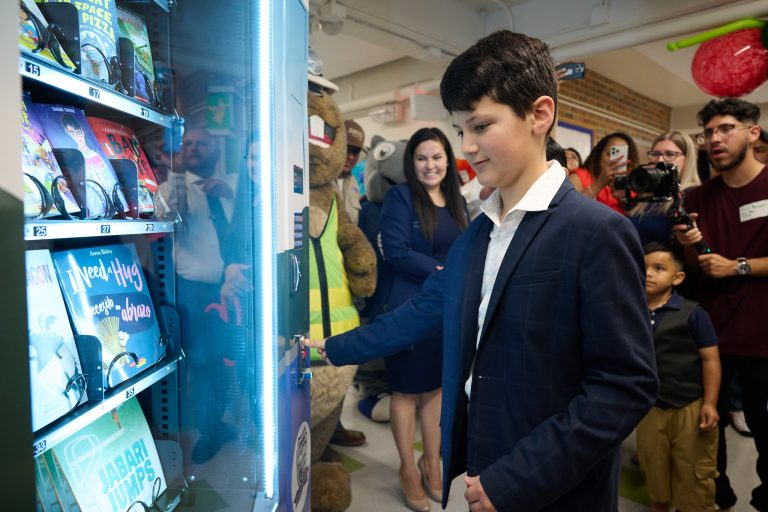Imagine being transported to a new world with the push of a button.
By picking from a selection of stories in their campus’s book vending machine, Dallas ISD students are able to do just that.
The initial book vending machines, introduced in 2022 through a partnership with the Dallas Education Foundation, began in three schools to foster a love of reading and help students build an at-home library.
“Book vending machines are an innovative approach to spark a love of literacy and bring books into our students’ homes,” said Emily Davis, Development and Grants Manager for DEF. “Instead of snacks, candy, and drinks, the vending machine houses engaging, age-appropriate, and culturally relevant books.”

Now, nearly 60 campuses across the district will have the vending machines, with 27 planned to be installed by the end of September 2024.
Studies show that by encouraging reading at home, not just during instruction, can increase literacy by improving students’ comprehension, vocabulary, phonics, and writing.
“Every book selected becomes a permanent addition to the student’s personal library, promoting ongoing reading enjoyment and fostering shared reading experiences with friends, family members, and caregivers,” Davis said. “While students may only spend a few minutes picking out the book of their choice, the machine enhances the culture of the campus year-round.”
Damien Stovall, executive director of Accelerating Campus Excellence, said building a campus culture that encourages reading is important to closing gaps and meeting the district’s literacy goals.
“The machines help to create a culture of literacy in our schools. We know to close the reading gaps; students must read more,” he said. “However, we have to make it fun and engaging. The book machine creates a joyful space and pushes our students to work to attain the reward. They get to have the books and the more they have, the more they want.”
Chosen by Dallas ISD Library Services and Early Learning departments, the books displayed in the vending machine represent a wide range of languages, cultures and topics of interest. Each machine is stocked with 300 books, and the ultimate goal is for every student to be able to use the vending machine at least once during the school year.
The vending machines take tokens, which are provided to campuses and given out by school team members to recognize good behavior and even birthdays. Students then use the coins to “purchase” a book of their choosing.
Rewarding students for their accomplishments in this way helps ensure their academic needs are met, Stovall said.
“Often, we are looking for ways to reward students, and at times the rewards may not support academics,” he said. “Now students are rewarded with a book that creates a love for reading and once they get one book, they are interested in others in the machine, so they work towards getting them.” 
For Davis, the most rewarding part of bringing the book vending machines to campuses is seeing how excited students get when they are given the opportunity to pick a book out for themselves.
“Their faces light up as they see the books in the machine,” she said. “Even in the middle of our unveiling events, students will take their books back to their seats and immediately become immersed in their book.”

